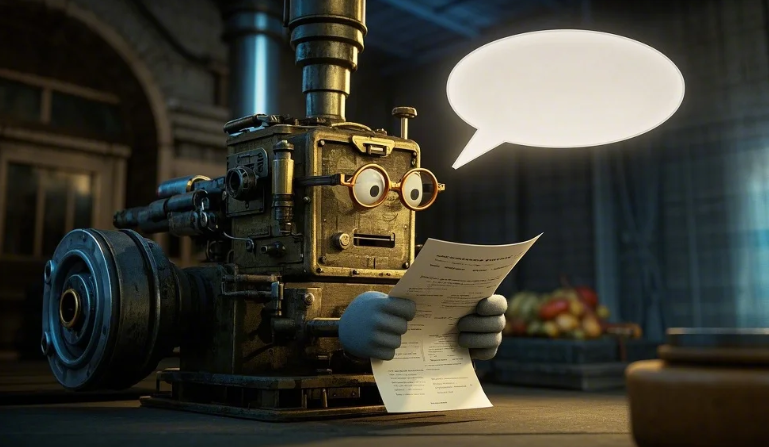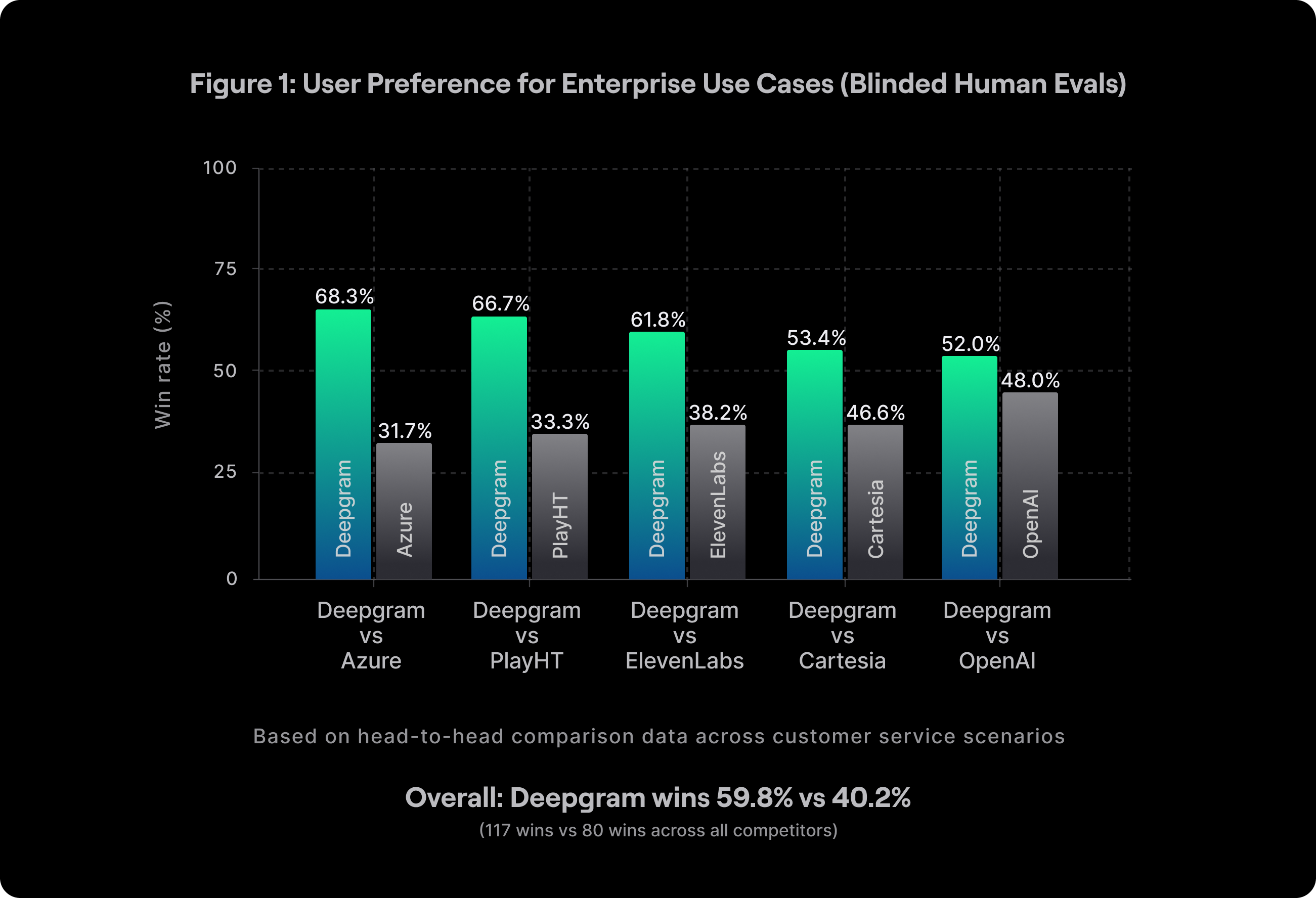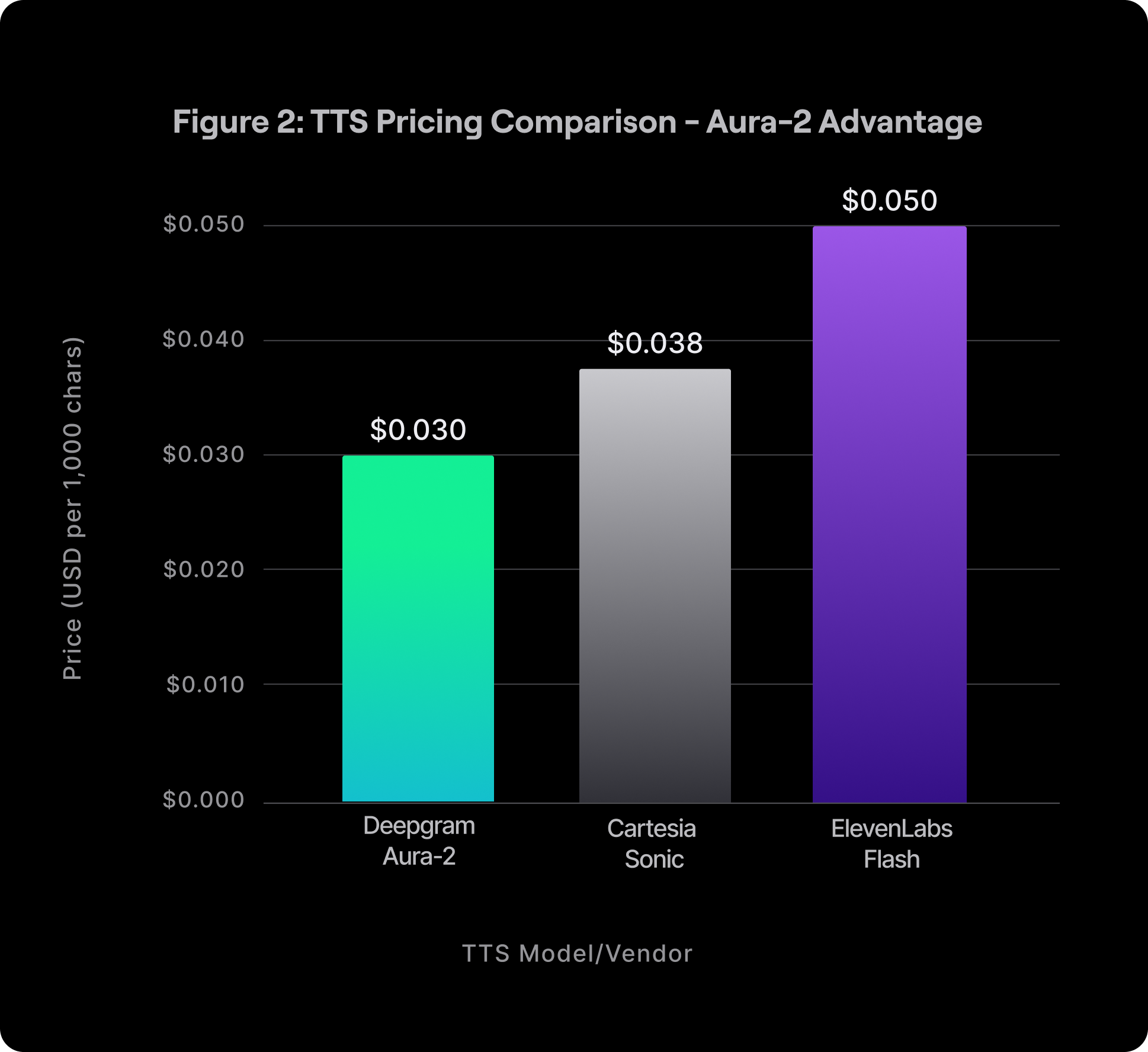 AI
AI
 AI
AI
 AI
AI
The speech recognition-focused startup Deepgram Inc. today launched a new text-to-speech model called Aura-2, saying it will be a game-changer for real-time voice applications.
According to the startup, Aura-2 is built for clarity, consistency and low-latency performance, enabling much smoother, more fluid and natural conversations between humans and artificial intelligence-powered chatbots. It can be used in almost any kind of voice application, including customer support agents, AI-powered assistants and more.
Deepgram is known for its highly sophisticated speech recognition engine, which enables humanlike conversations between human and machine. Its software has been widely praised for its responsiveness and its realistic nature, waiting for the most appropriate moment to break into the conversation, as well as its “interruptible” nature, which means humans can interject and it will immediately pause whatever it’s saying and reconfigure its response.
It argues that most existing text-to-speech engines are actually more focused on entertainment, optimized for character voices, storytelling and emotionally expressive delivery, which means they don’t always meet the demands of enterprise-grade voice systems. The customer service industry in particular needs more natural-sounding voices that support domain-specific pronunciation, with a professional tone and consistent contextual handling, while being cost-effective and secure.
According to Deepgram, that’s exactly what Aura-2 provides, delivering quality, context-aware speech and conversational experiences for any enterprise environment.
In a blog post, Deepgram points to a number of capabilities that set Aura-2 apart from other models, the main one being its excellence in terms of domain-specific pronunciation. By this, it means it’s designed to converse using highly specific terminology in various industries, fully literate with financial jargon, for example, or product names in the chemical industries. This eliminates the need for customers to fine-tune LLMs with extensive pronunciation dictionaries to provide clear communication when speaking about niche topics.
Aura-2 supports more than 40 distinct voices in English, including numerous regional U.S. accents and those from other English-speaking countries. Moreover, each accent will employ “business-appropriate speech” that purposely avoids using the overly theatrical tones that are too common with entertainment-focused text-to-speech engines. Customers can choose from various voice personas, ranging from empathetic and charismatic to calm and professional, to ensure their voice apps align with their brand identity.
Deepgram says Aura-2 also excels in terms of its interruption handling, context awareness and “end-of-thought detection,” enabling more fluid conversations, even when the human speaker interrupts the AI. The startup says it can intelligently adjust different aspects of its voice, such as pacing, pauses, tone and expression, based on the context of whatever it’s discussing, resulting in smoother, more coherent speech overall.
Deepgram Chief Executive Scott Stephenson said the AI chatbot industry has evolved to the point where enterprises don’t just require voices that sound real, but can reliably communicate with humanlike precision in professional contexts.
“Aura-2 delivers the perfect balance of natural speech and enterprise-grade accuracy, enabling organizations to create voice experiences that truly enhance customer engagement while maintaining operational efficiency,” he promised.
The company showed off this graphic, which shows that humans strongly prefer interacting with Aura-2 over various other text-to-speech models, including the most advanced models from OpenAI and Microsoft Corp.

Aura-2’s responsiveness is another major strength. The company boasts of sub-200 milliseconds responses, as well as impressive scalability, handling thousands of concurrent requests to support high-volume deployments in call centers and virtual assistant scenarios.
Holger Mueller of Constellation Research Inc. said Aura-2’s results are impressive, because it’s incredibly difficult to create AI voices that don’t sound like they are machine-generated.
“The competition to create ‘natural-sounding voices’ is extremely fierce, and it’s encouraging to see a startup like Deepgram appearing to take the lead in this area with its latest text-to-speech model,” the analyst said. “The real test will be when we get to hear them in action, but the benchmark results suggest it’s onto something good.”
Customers have the option to deploy Aura-2 on-premises or in virtual private cloud environments to ensure full control over their data, which also has the impact of further reducing latency.
Deepgram highlighted Aura-2’s competitiveness in terms of cost, too. It said it’s priced at just three cents per 1,000 characters, making it significantly cheaper than other business-focused models such as Elevenlabs Turbo and Cartesia Sonic, which cost five cents and 3.8 cents, respectively. It charges the same rate for all 40-plus voices offered, with a tiered pricing structure for higher-volume deployments.

Lastly, Deepgram explained that Aura-2 is powered by a customized infrastructure layer called Deepgram Enterprise Runtime. This supports additional features such as automated model adaptation, enabling it to learn on the job and improve its performance over time, and model “hot-swapping,” where customers can instantly switch among the underlying large language models that power their chat applications, without downtime.
Deepgram is inviting customers to get started with Aura-2 now via its interactive playground. New signups will get a generous $200 worth of free credits, enough to generate around 220 hours of speech, providing ample opportunity to experiment and see how it performs in various voice application scenarios.
Support our mission to keep content open and free by engaging with theCUBE community. Join theCUBE’s Alumni Trust Network, where technology leaders connect, share intelligence and create opportunities.
Founded by tech visionaries John Furrier and Dave Vellante, SiliconANGLE Media has built a dynamic ecosystem of industry-leading digital media brands that reach 15+ million elite tech professionals. Our new proprietary theCUBE AI Video Cloud is breaking ground in audience interaction, leveraging theCUBEai.com neural network to help technology companies make data-driven decisions and stay at the forefront of industry conversations.